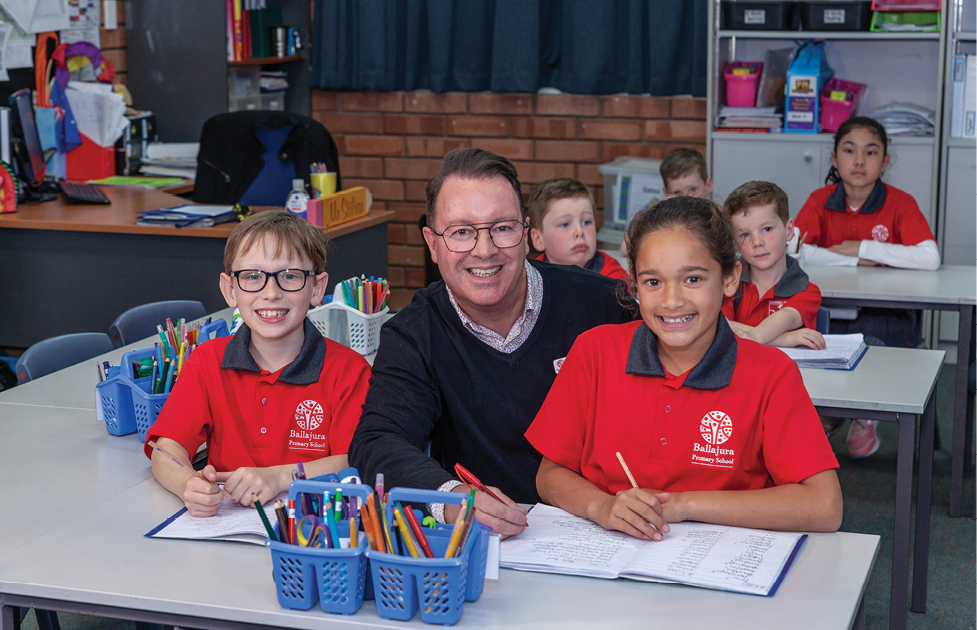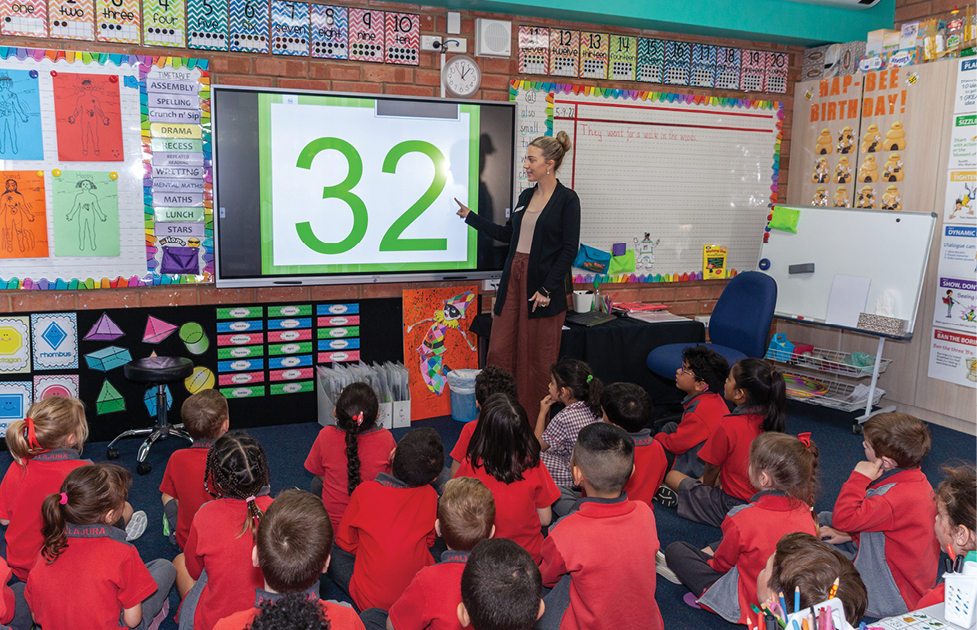 Ballajura Primary School provides a well-rounded curriculum through the delivery of the School Curriculum and Assessment Authority’s WA Curriculum/ syllabus.
Ballajura Primary School provides a well-rounded curriculum through the delivery of the School Curriculum and Assessment Authority’s WA Curriculum/ syllabus.
The school delivers learning across the 8 learnings areas:
- English
- Mathematics
- Humanities and Social Sciences
With Specialists delivering the curriculum in
- Physical Education and Health
- Science
- Technologies
- The Arts and
- Language – Italian
Students at Ballajura Primary School also have the opportunity to be included in the instrumental music program as delivered through the Instrumental Music School Services tutors.
Throughout the phases of schooling every student will be immersed in a well-balanced curriculum with different priorities for each different phase of schooling. The emphasis varies across the phases of schooling with curriculum and program development recognising that each student is developing and achieving in different ways, stages and rates and, in some classes, students will be in different year levels.
In the early years of schooling (Kindergarten to Year 2), students are provided with a holistic curriculum through which they are able to build, design, problem-solve, represent and reflect on new learning in ways that are meaningful to them. This learning is supported through intentional teaching in planned and unplanned experiences to extend learning. They experience frequent opportunities to develop shared understandings and content knowledge. The emphasis on literacy and numeracy is encapsulated in a holistic approach to learning where key ideas and concepts in a range of learning areas are presented in phase appropriate ways. Students have opportunities to develop their control and understanding of the symbolic representations associated with written language and mathematics. Their social and emotional development is emphasised so that children build strong relationships, can work with others and develop a positive sense of self.
 Curriculum experiences will typically integrate knowledge, understandings, skills and values and attitudes across learning areas that encourage student’s autonomy, intellectual risk-taking, responsibility, agency and control over learning. Providing a solid foundation before moving into the next phase of schooling.
Curriculum experiences will typically integrate knowledge, understandings, skills and values and attitudes across learning areas that encourage student’s autonomy, intellectual risk-taking, responsibility, agency and control over learning. Providing a solid foundation before moving into the next phase of schooling.
In middle childhood (Years 3 and 4), students begin to understand and appreciate different points of view, develop the ability to think in more abstract terms and undertake sustained activities for longer periods. The ability of students to work collaboratively and to develop their social skills should be fostered by activities that require group planning and decision making, and interaction with people inside and outside their classroom. They experience increased responsibility for managing and organising activities, individually and in groups of varying sizes.
In late childhood (Years 5 and 6), students develop their abilities to draw on a wider range of sources of information, including experiences beyond their immediate environment and those of people from other times, places and cultures. Quality learning experiences support students to appreciate both the commonality and diversity of human experience and concerns.
These students develop a sound grasp of written language and numeric conventions and use these in a range of different learning experiences in purposeful ways to achieve across all learning areas. They reflect on their learning and work practices and consider ways in which these might be improved, modified, or adapted for different situations.
